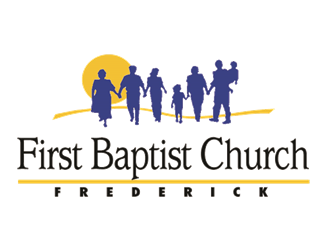What We Believe
What do Baptists believe? There is no one simple formula or list. We Baptists would rather figure it out for ourselves rather than be told to conform to some ecclesiastical creed. Therefore, even though we hold to the mainstream of evangelical beliefs, it’s somewhat difficult to find two Baptists who agree on every doctrine or interpretation of Scripture.
We understand, first of all, that Baptists are part of the larger universal Church of believers. We have more in common with our non-Baptist brothers and sisters in Christ than we have differences. That we as Baptists have distinctive beliefs does not give us license to isolate ourselves from other Christians, to treat other Christians as inferiors, or to suggest that only Baptists are Christians.
We believe that in order to maintain the unity of the church, we must have the following understandings:
In essential beliefs–we have unity.
There is one Body and one Spirit . . . there is one Lord, one faith, one baptism, and one God and Father of us all. Ephesians 4:4-6
In non-essential beliefs–we have liberty.
Accept the one whose faith is weak, without passing judgment on disputable matters . . . . Who are you to judge someone else’s servant? To his own master he stands or falls . . . So then each of us will give an account of himself to God . . . So whatever you believe about these things keep between yourself and God. Romans 14:1,4,12, 22
In all our beliefs–we show love.
And if I have prophetic powers, and understand all mysteries and all knowledge, and if I have all faith, so as to remove mountains, but do not have love, I am nothing. 1 Corinthians 13:2
The Essentials
1. GOD
There is only one God, the Creator and Ruler of the universe. The eternal God reveals Himself to us as Father, Son, and Holy Spirit. These three are co-equal and are one God.
2. THE FATHER
God the Father is all-powerful, all-loving, and all-wise. He reigns with providential care over His universe. God is Father in truth to those who become children of God through faith in Jesus Christ. He is fatherly in His attitude toward all people.
3. JESUS CHRIST, THE SON OF GOD
Jesus Christ is the Son of God, and as such is co-equal with God. He lived a sinless human life and offered himself as the perfect sacrifice for the sins of all people by dying on a cross. He was raised from the dead after three days to demonstrate God’s power over sin and death. He ascended to heaven in glory and power, and will return again someday to reign as King of Kings and Lord of Lords.
4. THE HOLY SPIRIT
The Holy Spirit is God’s earthly presence in the life of the believer. He is co-equal with the Father and the Son. He is present in the world to make people aware of their need for salvation. He lives in the lives of every Christian from the moment of conversion. He provides the Christian with power for living, understanding of spiritual truth, and guidance in doing what is right. He provides each Christian with a spiritual gift to be used in the church for the building of the Kingdom of God.
5. THE BIBLE
The Bible was written by men inspired by God, and is the record of God’s revelation of Himself to man. It is our sole authority in matters of faith and practice, and is the supreme standard by which all human conduct, creeds, and religious opinions should be judged. Baptists recognize no human creeds as having any authority. These beliefs are what we generally hold to be true, but we respect and value the diversity of beliefs that fall within the Christian faith. We do not seek to enforce any kind of theological or biblical conformity but encourage freedom of thought. Thus these statements can be used as guides to interpreting scripture. The ultimate criterion for biblical interpretation—the lens we look through when we read the Bible—is Jesus Christ.
6. HUMAN BEINGS
People are made in the spiritual image of God, to be like Him in character. Although every person has tremendous potential for good, all of us are marred by an attitude of disobedience toward God called sin, which separates people from God, and about which we are helpless to correct or control. Without divine intervention, this separation is eternal.
7. SALVATION
Salvation is God’s free gift offered to all people, but each individual must accept it. We can never make up for our sin by self-improvement or good works. Only by trusting in Jesus Christ as God’s offer of forgiveness can anyone be saved from sin ‘s penalty. When we turn from our self-ruled life and turn to Jesus in faith, we receive salvation.
8. ETERNITY
People were created to exist forever as spiritual creatures. We will either exist eternally separated from God by sin, or eternally with God through forgiveness and salvation. Heaven and Hell are states of eternal existence. To be eternally separated from God is Hell; to be eternally in union with God is Heaven.
Baptist Distinctives
Though we share the above beliefs with most Christians, there are some things that set us apart as Baptists. The essence of what characterizes Baptists is found in the word “freedom.” God is free, each human is free, each Christian is free, each church is free.
1. SOUL COMPETENCY
Soul Competency refers to the freedom, the right, the ability, and the responsibility of each person to accept or to reject God apart from human or divine compulsion.
2. THE AUTONOMY OF THE LOCAL CHURCH
Each church is free to act and believe as it sees fit under the guidance of the Holy Spirit, without coercion from any outside organization or institution. Churches may join together in cooperative ventures, but such organizations exist to serve the churches, and are under the authority of the churches, not the other way around.
3. THE PRIESTHOOD OF THE BELIEVER
The doctrine of the priesthood of the believer has two important implications for the Christian. First, each Christian has direct access to God through Jesus Christ. No human mediator is needed; the only mediator between humans and God is Christ. Second, every Christian is called to “full-time” Christian service, regardless of his or her vocation. Every member is encouraged to find a place of service and ministry.
4. SEPARATION OF CHURCH AND STATE
In our early history, Baptists were persecuted by governments and their state-sponsored religions. Roger Williams, the first Baptist in the colonies, was forced to move to Rhode Island because of his strong views on this matter, which ran counter to both the religious and civil views of those in Massachusetts. Baptists have traditionally been against any efforts by government to establish religion, any efforts of religion to use government for its ends, and any infringements by government on the freedom of religious practices, especially for those religions or denominations that are in the minority.
5. BELIEVER’S BAPTISM
A Baptist Church is composed of baptized believers in Jesus. The biblical mode of baptism is immersion, as reflected in the Greek word baptizo, which means “to dip under water, to immerse.” The act of baptism has no power to save; it is a symbolic act. It is a public profession of a person’s faith in Christ, and symbolizes the believer’s death, burial and resurrection, as Paul said in Romans 6:4: “Therefore we have been buried with him by baptism into death, so that, just as Christ was raised from the dead by the glory of the Father, so we too might walk in newness of life.”
Imago Dei: The Image of God
All people are created in the Image of God and that changes everything. It changes how we view and interact with others, as well as the issues that we care about as believers. Every life matters because every life is created in the image of God.


